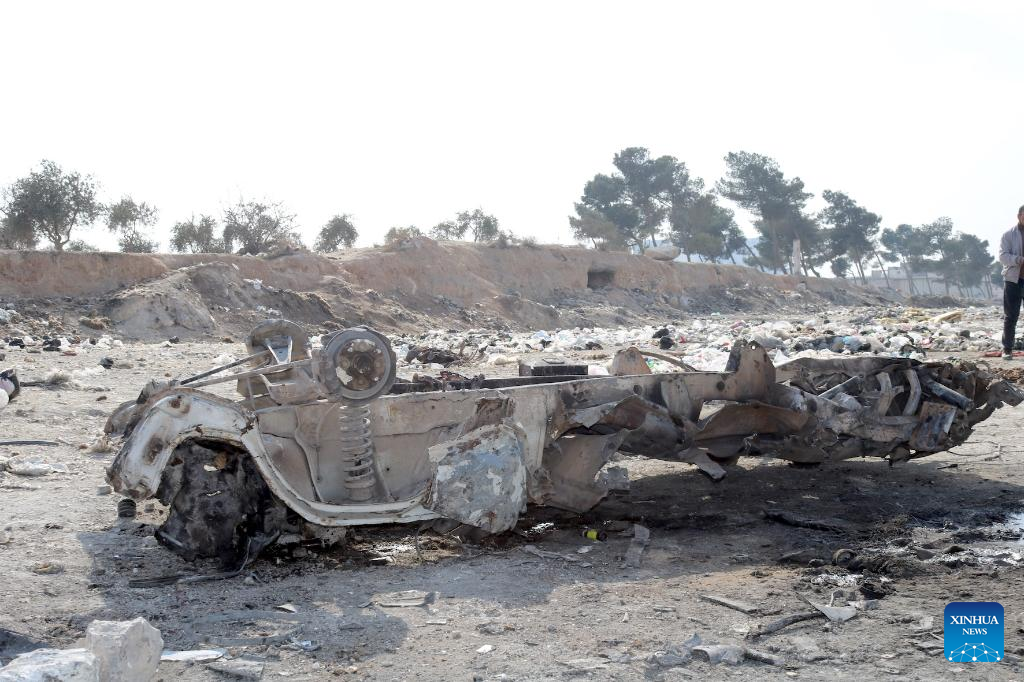A car bombing on the outskirts of Manbij in northern Syria has claimed the lives of at least 20 people, leaving many others wounded, according to the Syrian presidency.
Monday’s explosion marked the deadliest attack since the ousting of President Bashar al-Assad last December.
This incident is the seventh car bombing in just over a month in a region plagued by ongoing clashes between Turkish-backed forces and a Kurdish-led group.
Syria’s newly appointed President, Ahmed al-Sharaa, strongly denounced the attack, labelling it an act of terrorism and vowing to bring those responsible to justice.
“This crime will not pass without the strongest punishment for its perpetrators, so they become an example for anyone who considers compromising Syria’s security or harming its people,” the presidency stated.
Medical personnel told the Associated Press that the explosion occurred at night when the car bomb detonated near a vehicle carrying mostly agricultural workers.
The Syrian Civil Defence, widely known as the White Helmets, reported that the victims included at least 11 women and three children.
“Everyone of these victims had families and dreams,” the organisation said. “Their effort to earn a living turned into death and wounds. Justice for them must be achieved, and the perpetrators of this crime must be held accountable.”
As of now, no group has stepped forward to claim responsibility for the attack.
Just two days earlier, another car bombing in Manbij killed four people and injured nine others, as reported by Syria’s state news agency, SANA.
Jameel al-Sayyed, an activist and journalist based in Manbij, told the Associated Press that the wave of attacks has heightened security concerns among locals.

“There are efforts from the people of Manbij to focus on protecting some neighbourhoods as well as setting up surveillance cameras in the main neighbourhoods of the city,” al-Sayyed said.
Manbij, strategically positioned south of the Turkish border and east of Aleppo, has seen shifting control throughout Syria’s long-running conflict, which began in 2011.
In December, Turkish-backed forces seized the city from the US-supported, Kurdish-led Syrian Democratic Forces (SDF), which has since condemned the latest bombing.
Without presenting evidence, the SDF pointed fingers at what it referred to as Turkiye’s “mercenaries,” accusing them of orchestrating the attack.
Turkiye, a NATO member, considers the SDF to be linked to the People’s Protection Units (YPG) and the Kurdistan Workers’ Party (PKK), both of which it classifies as terrorist organisations.
President al-Sharaa, a former rebel commander who recently assumed leadership on a transitional basis, is scheduled to visit Turkiye later this week.


